I am writing an auction program for a class project and one of the features I was trying to implement was a hash table to make searching for auction items by name efficient. I set it up in node format so that you can chain nodes together if their hash value lines up with another item that already exists.
The main problem that I cannot seem to figure out is how some pointer values are changing when I don't think I have done anything to them. I stepped through each line of this program keeping an eye on the Red highlighted areas in the attached screenshots to see when the data changes. In case #1 the data was intact and able to be accessed. However, in case #2 where I simply declare an additional variable (int i = 0;) suddenly the data passed into the function appears to point to a different memory location (0xcccccccc) which from what I understand is another version of null? This is the same no matter what variable type I have tried to declare whether it be an int, const char*, string, etc it all reacts like the second screenshot.
Does anyone know why the program would be doing this? Are there any other troubleshooting tips? Is this a common error and how should I avoid it in the future and for this project?
I can provide a complete code if needed. I appreciate any help you can provide.
Image 1: No additional variable declared, data in tact as expected
Image 2: integer variable declared, data at ->next suddenly changed. This appears to be this way from the start of the function.
Update: I created an MRE as suggested in a comment, the same error can be reproduced using this code.
#include <iostream>
#include <fstream>
#include <string>
#include <vector>
using namespace std;
class AuctionItemBidsMaxHeap {
string name = "test";
public:
const char * getItemName() {
return name.c_str();
}
};
class AuctionItemHashTable {
private:
struct Node {
AuctionItemBidsMaxHeap* AuctionItem;
Node* next = nullptr;
};
Node* itemArray;
int capacity = 50;
int generateHashKey(string auctionItem) {
return 11;
}
public:
AuctionItemHashTable() {
//Create the array of X amount of different possible storage locations
Node emptyNode;
emptyNode.AuctionItem = nullptr;
emptyNode.next = nullptr;
itemArray = new Node[capacity];
for (int i = 0; i < capacity; i++) {
itemArray[i] = emptyNode;
}
}
~AuctionItemHashTable() {
delete itemArray;
}
void insertItem(AuctionItemBidsMaxHeap* auctionItem) {
//Check to see if this item already exists
int key = generateHashKey(auctionItem->getItemName());
Node newAuctionItem;
newAuctionItem.AuctionItem = auctionItem;
newAuctionItem.next = nullptr;
//Check to see if anything has been inserted there yet
if (itemArray[key].AuctionItem == nullptr) {
itemArray[key] = newAuctionItem;
}
else {
//WE have to make room in the semi-linked list
Node holder;
holder.AuctionItem = itemArray[key].AuctionItem;
holder.next = itemArray[key].next;
newAuctionItem.next = &holder;
itemArray[key] = newAuctionItem;
}
}
AuctionItemBidsMaxHeap* getAuctionItem(const char* itemName) {
int key = generateHashKey(itemName);
//Loop through all items in location
Node* currentNode = &itemArray[key];
if (currentNode == nullptr) {
return nullptr;
}
else {
if (currentNode->AuctionItem->getItemName() == itemName) {
cout << "Match" << endl;
}
while (currentNode->next != nullptr && currentNode->next != (void*)0xcccccccc) {
int i = 0;
if (currentNode->next->AuctionItem->getItemName()[0] == 'M') {
cout << "M Matched" << endl;
}
while (currentNode->next->AuctionItem->getItemName()[0] != 'e') {
//cout << currentNode->next->AuctionItem->getItemName()[i];
}
currentNode = currentNode->next;
}
//There was an item stored at this location, lets see which one it is
//void* p = (void*)0xcccccccc; //Creating a pointer since for some reason my final pointer gets changed to another type of null character upon passing it to a function
//cout << currentNode->AuctionItem->getItemName() << endl;
//while (currentNode->next != nullptr && currentNode->next != p) {
//cout << currentNode->AuctionItem->getItemName() << endl;
//currentNode = currentNode->next;
//}
return currentNode->AuctionItem;
}
}
};
int main()
{
/**Creating MaxHeap of one bid**/
AuctionItemBidsMaxHeap myBidTest;
AuctionItemBidsMaxHeap myBidTest2;
/**Creating Auction Item Hash Table**/
AuctionItemHashTable auctionItems;
auctionItems.insertItem(&myBidTest);
auctionItems.insertItem(&myBidTest2);
const char* myInput = "test";
auctionItems.getAuctionItem(myInput);
}